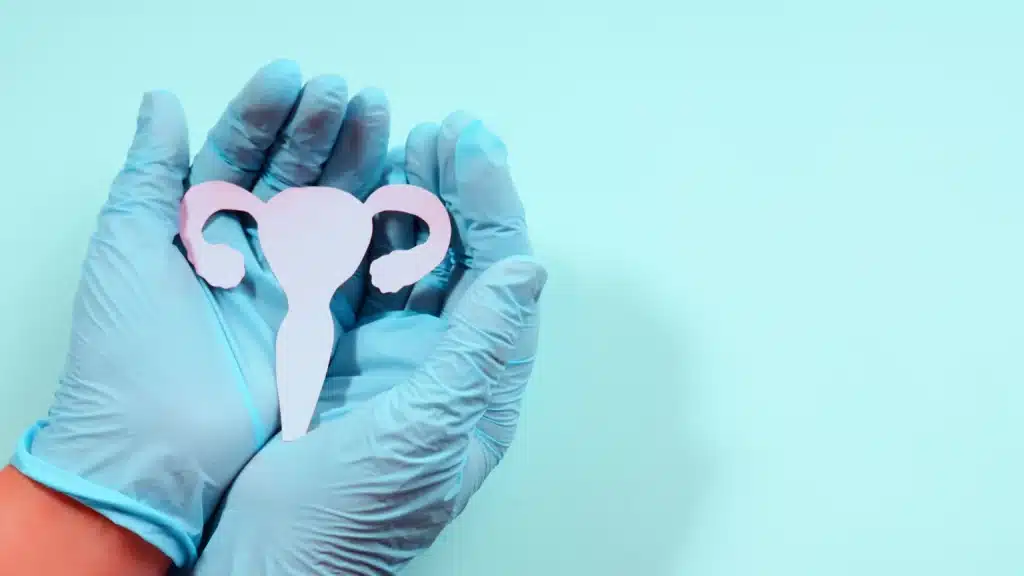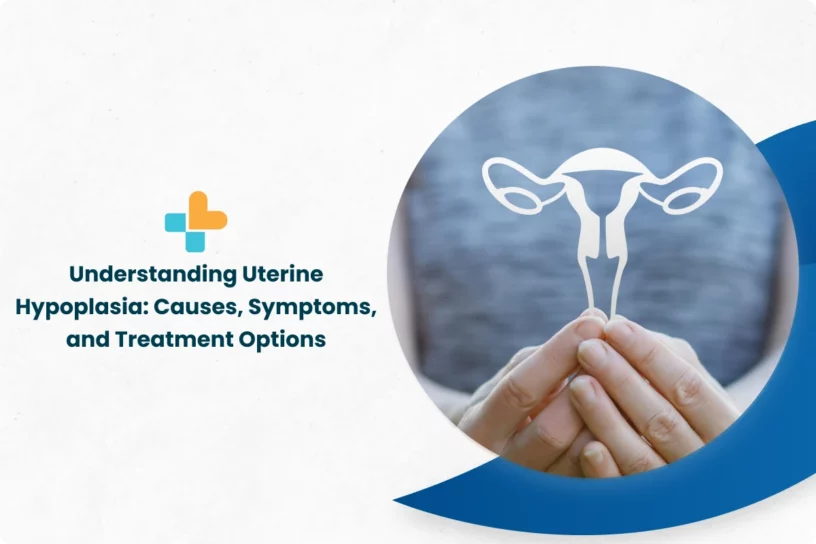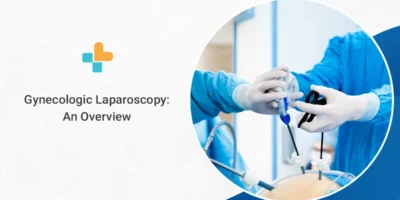Uterine hypoplasia is a condition that affects women’s reproductive health, where the uterus is abnormally small or underdeveloped. It can lead to fertility issues, menstrual irregularities, and other complications. Understanding the causes, symptoms, and available treatment options for uterine hypoplasia is crucial for women who may be experiencing related symptoms.
In this blog post, we will explore the different aspects of uterine hypoplasia in detail, including its potential impact on a woman’s health and well-being.
What Is Uterine Hypoplasia?
Uterine hypoplasia is a medical condition that affects women’s reproductive health. It is characterized by an abnormally small or underdeveloped uterus, which can lead to a range of complications including menstrual irregularities, fertility issues, and difficulties during pregnancy. Genetic abnormalities, hormonal imbalances, or exposure to certain toxins can cause it. Diagnosis is made through imaging tests, and treatment options vary depending on the case.

What Causes Hypoplastic Uterus?
A hypoplastic uterus can be caused by various factors, such as genetic abnormalities, exposure to environmental toxins, hormonal imbalances, infections or inflammations of the uterus, and previous surgeries or other conditions. The exact cause depends on whether the hypoplasia is internal or external.
External Uterine Hypoplasia Causes
- Genetic abnormalities or disorders such as Turner syndrome or Mayer-Rokitansky-Küster-Hauser (MRKH) syndrome
- Exposure to environmental toxins or medications that affect fetal development
- Surgical procedures such as hysterectomy or uterine artery embolization
Internal Uterine Hypoplasia Causes
- Hormonal imbalances, particularly during puberty or menopause
- Infections or inflammations of the uterus or reproductive system
- Intrauterine adhesions or scarring due to previous surgeries, infections, or other conditions
- Chronic endometritis, a type of inflammation of the uterine lining, can also lead to internal uterine hypoplasia
Uterine Hypoplasia Symptoms
Some common symptoms of uterine hypoplasia may include:
- Abnormal menstrual cycles (such as absent periods, light or infrequent periods)
- Infertility or difficulty getting pregnant
- Miscarriage or preterm delivery
- Pelvic pain or discomfort
- Abnormalities detected during imaging tests, such as a small or malformed uterus.
It’s important to note that some women with uterine hypoplasia may not experience any symptoms at all, and the severity of symptoms can vary depending on the degree of uterine hypoplasia present.
Hypoplastic Uterus Degrees and Their Characteristics
The hypoplastic uterus can be classified into three degrees based on the degree of underdevelopment of the uterus. The degrees and their characteristics are:
- First Degree Hypoplasia:
The uterus is small but retains its normal shape and structure. Women with first-degree hypoplasia may experience menstrual irregularities or infertility, but the condition is often not diagnosed until they seek medical attention for these issues.
- Second Degree Hypoplasia:
The uterus is significantly smaller than normal and may have an abnormal shape. Women with second-degree hypoplasia may experience more severe menstrual irregularities, fertility issues, and a higher risk of miscarriage or preterm delivery.
- Third Degree Hypoplasia:
The uterus is extremely small or absent, and women with third-degree hypoplasia are unable to conceive naturally. They may also have other associated reproductive tract anomalies, such as the absence of the cervix or vagina.
It’s important to note that the severity of symptoms and associated complications can vary even within each degree of hypoplasia, and treatment options may differ accordingly.
Hypoplastic Uterus Treatment
- Hormonal medications: Besides estrogen and progesterone, other medications that may be prescribed to stimulate endometrial growth and regulate menstrual cycles include clomiphene citrate, letrozole, and gonadotropins.
- Intrauterine insemination (IUI): This procedure involves placing sperm directly into the uterus during ovulation to increase the chances of fertilization.
- In vitro fertilization (IVF): This is a more complex fertility treatment that involves fertilizing eggs outside of the body and transferring them into the uterus.
- Surrogacy: Women with severe hypoplastic uterus may consider surrogacy, which involves implanting an embryo created with their own or donated eggs and sperm into the uterus of a surrogate.
- Uterine reconstruction surgery: In cases of second-degree hypoplasia, surgical procedures such as metroplasty or uterine septum resection may be performed to reshape and enlarge the uterus.
- Psychological counseling: Women with hypoplastic uterus may experience emotional distress due to infertility or pregnancy loss, and counseling or support groups may be beneficial.
Diagnostic tests that may be performed in the evaluation of hypoplastic uterus include:
- Ultrasound imaging: to visualize the size and structure of the uterus
- Hysterosalpingography (HSG): a type of X-ray that uses dye to evaluate the shape and patency of the fallopian tubes and uterus
- Magnetic resonance imaging (MRI): a non-invasive imaging test that provides detailed pictures of the uterus and surrounding structures
Treatment options for hypoplastic uterus should be discussed with a healthcare provider who can provide personalized recommendations based on individual needs and medical history.
Also Read : Women’s Health Issues in India: What You Need to Know
Conclusion
Hypoplastic uterus is a condition characterized by underdeveloped uterus, leading to menstrual irregularities and infertility. Treatment options vary depending on the degree of underdevelopment and symptoms and may include hormone therapy, fertility treatments, surgery, and counseling.
If you are experiencing symptoms of hypoplastic uterus or have concerns about your reproductive health, it’s important to consult with a healthcare provider. At Ayu Health, we provide comprehensive women’s health services, including evaluation and treatment of hypoplastic uterus. Our experienced healthcare providers are dedicated to providing personalized care that addresses your unique needs and concerns.
Contact us today to schedule an appointment and take the first step towards better reproductive health.
Our Hospital Locations
Gynaecology Surgery Hospitals in Chandigarh | Gynaecology Surgery Hospitals in Bangalore | Gynaecology Surgery Hospitals in Jaipur | Gynaecology Surgery Hospitals in NCR | Gynaecology Surgery Hospitals in Hyderabad
Our Doctors
Gynaecology Surgery Doctors in Chandigarh | Gynaecology Surgery Doctors in Bangalore | Gynaecology Surgery Doctors in Jaipur | Gynaecology Surgery Doctors in NCR | Gynaecology Surgery Doctors in Hyderabad
About the Author





